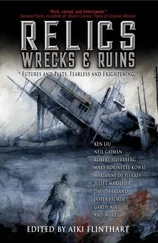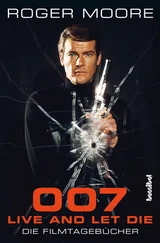My dad got me the Liz Phair album when I was in high school. He thought I would like it, and I did. I blasted it every time I borrowed his car, affecting her girlish earnestness, just self-conscious enough to pretend toward irony. I could take this in doses large enough to kill. Jared’s butt cheeks were almost repulsive in their vulnerability — disproportionately small, cuddled against each other, the skin a mottled red sprouting long, curly, brown hairs. I was entrusted with their care. When Jared gripped my neck and banged my head against his flimsy bedroom wall, my tenderness was forced out of my chest and into the world. I imagined him as a kid, sitting alone in the backyard after school, waiting for his father to get home from work, plucking a thick blade of grass and holding it taut between his thumbs. In tenth grade, he dropped out of school to go on tour with the Grateful Dead. His father gave him three hundred bucks and wished him luck. Jared hitchhiked and begged and slept in city parks for the next two years. I was the whistle the blade of grass made when his small self blew against its sharp edge.
Once I tried to explain to Jared the need to do violence to my love. Then I giggled, hoping I sounded as cavalier as Liz Phair. He was hard in an instant. He gripped my shoulders and pressed his open mouth to my collarbone and pushed inside me. For a long time, neither of us moved. In my mind, a small wave tumbled over itself to fall on dry sand, then retreated into the deep vast blue. Tumbled, retreated, tumbled again.
BRIMSFIELD
When I was seven, we moved out of the cultured, lovely town of Northampton, Massachusetts, to a shithole inhabited by cretins a few miles away because it was the only place my parents could afford the decrepit yet palacial Victorian house my mother believed she needed to live in to be happy. She was thoughtful enough to rent a post-office box so that I could, illicitly, keep going to school in Northampton, but she did not consider that since she hated to drive and my father worked during the week, living nearly an hour away from school would severely limit my ability to have friends or play sports. “Oh please, as if you were just about to take up field hockey,” she said in response to my complaints. She was right: I preferred reading in bed to any other activity in the world. By moving me an hour away from the only civilization I’d known and giving me my own floor in a giant house that was always freezing since my father’s intermittent videography work could not cover an exorbitant electricity bill, my mother ensured that I would rarely have to leave my comfort zone.
I was about eight when I discovered the mirror trick. I would lock myself in the downstairs bathroom, the one with a mirror that covered the whole wall above the sink. Sitting cross-legged on the cool black tiles, my knees and forehead touching the glass, I stared into my eyes. For the first few minutes, I noticed my thin lips, blue eyes, the freckles shaped in a heart next to my left nostril. I made tiny facial movements — widening my eyes, puckering my lips — to convince myself that the person I was seeing corresponded to my actual self, in real time. But gradually, as I sat and stared, my face became foreign to me, the way a particular word loses its meaning if you say it aloud over and over. The arrangement of my features looked alien, in the child’s sense of the word. Later, when Magic Eye drawings became popular, I was reminded of the exact second of the mirror feeling’s arrival every time I stared at one of those computer-generated creations, and a mass of indistinguishable colored dots suddenly gave way to an intricate scene — a scientist pouring from a flask, a girl kicking a soccer ball. For a time, I was addicted to the exhilarating discomfort of seeing myself as unrecognizable. I’d always end up rolling around on the bath mat, mesmerized by this sensation that was the absence of all learned physical sensations. Of course I had none of these thoughts at the time. It was not I, but my body, that was bewildered.
—
My mother burst into my room one night while my father and I were playing Connect Four. She shook a woman’s magazine in the air above our heads and read out loud: “Leave him after the first slap!” I had never seen my father slap my mother, but he didn’t deny he had. Mostly, he seemed not to really participate in their fights — like at Thanksgiving, when she had screamed “Shit! Shit! Shit!” because the bakery ran out of her favorite kind of pie. My father read a novel on the couch through her cries. It had been his job to pick up the pie.
The kitchen table was my mother’s favorite place to cry. Her sobs made me think of gasping fish, flopping about on the bottom of a ship. On the nights after their fights, my dad would read to me before bed, sitting on the floor with his back against my twin bed, his voice straining toward sweetness. After he shut out the light and left, I would roll onto my stomach with my fists pressed against my chest and imagine floating high above everyone I knew — parents, teachers, classmates — until each familiar head became an indiscriminate black dot before fading into the green-speckled earth.The trick helped, a little. I learned to hear the screaming as wordless, the sound of the space between two people, any two people, every two people.
My mother met another man and separated from my father when I was in sixth grade. I went out for dinner with my mom and her new boyfriend a few times. Rick didn’t speak to me. He just looked at my mother’s made-up face with this vacant urgency, as if a need that belonged to someone else had gotten lost inside him and was searching for a way out. He gave me a teddy bear for my eleventh birthday, just when I was discovering lip gloss and MTV. Rick and my mother moved to Phoenix, where one of his buddies had promised him a job “making bank”—my mom giggled when she repeated the phrase to me — as a sales rep for some popular online store. My mother invited me to move with her, but I stayed with my father, who always had time for me. He hadn’t had any videography assignments in a while. He was always talking about making a documentary, but whenever he started seriously pursuing one of his ideas — doing research, contacting potential interview subjects — he decided there wasn’t enough information or it had already been done or another cause was more important.
Strange, but the years after my mother left weren’t so bad. I now had an excuse for how I was. I was the girl whose mother had abandoned her; it was only natural that I be eerie and withdrawn, that I show up to school in strange outfits that made people laugh nervously and give me a wide berth. It was satisfying to discomfit my peers, whom I saw as obsessed with grades and clothes and popularity. And it was nice to be free of my anger at my mother’s mopiness and erratic, desperate laugh. My father was an easier person — or at least it seemed that way to me, his child, his favorite part of life. He let me cut class whenever I wanted. We’d drive around in his pickup truck, listen to loud music, blast the heat, roll down the windows, sing along with Radiohead and R.E.M., my dad tapping the beat into the dashboard— It’s been a bad day, please don’t take a picture —and my dirty blond hair flying in the icy air and catching on my tongue. Listening to tidy song feelings captured by my father’s voice— Destiny, protect me from the world —I felt protected from everything except his thin lips and pale skin and watery blue eyes, all just like mine. Sometimes he would turn down the music and ease off the accelerator and start talking about getting whipped by his father and all the hope he’d poured into falling in love with my mother and how he felt like such a failure for never having made a film of his own, but he’d made me and that was really enough, wasn’t it? I liked my father’s words, their solemn import attached to my silly life of carrying a heavy backpack to and from a brick cube. I knew there was something wrong with my father’s lack of restraint — a needy egotism inherent in philosophizing to one’s child — but so many times, embedded in his ramblings, was some comment that soothed my inner turbulence. Every closeness is a prison. Another thing my father used to say.
Читать дальше












